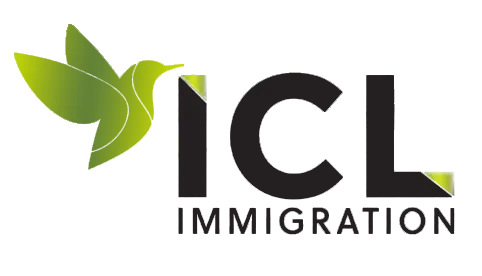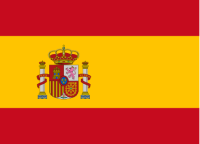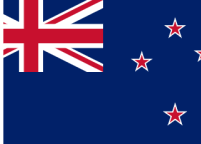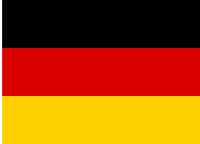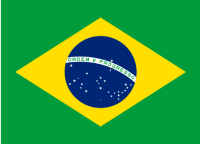About the Dairy Industry
Dairy farming is a major industry in New Zealand and the country’s top export earner. With nearly as many dairy cows as people, the average farm has over 400 cows, though some larger farms may have more than 1,500. In 2019, the industry employed more than 40,000 people, with over 35,000 working on farms.
New Zealand is a leader in dairy farming, with its efficient grass-based farming systems, large-scale processing, and innovative research and development. New Zealand dairy companies control a third of the international dairy trade, making the country a key player in the global market.
The dairy industry is New Zealand’s largest export earner, with exports exceeding $17 billion annually. The country’s 12,000 dairy farms produce over 18 billion litres of milk yearly, containing 1.7 billion kilograms of milk solids.
Overview
- New Zealand is one of the world’s largest dairy exporters, accounting for 30% of the global dairy trade.
- Although it produces only 3% of the world’s milk, New Zealand is the largest exporter of Whole Milk Powder (WMP).
- The industry is known for its innovation, sustainability, and commitment to research and development.
Working on New Zealand Dairy Farms
New Zealand dairy farms may operate differently from what you’re used to, so additional training or qualifications may be required. Most jobs will also require a driver’s license. If you’re considering a career in dairy farming, here are some key things to know: you need to be good with animals, but there’s much more to it!
Reach out to us today, to find out how we can assist you in reaching your immigration goals.
Career Opportunities in New Zealand’s Dairy Industry
The dairy industry in New Zealand offers a wide range of career opportunities with competitive salaries and career growth. Whether you’re new to the industry or looking to move forward in your career, their is always opportunity in NZ dairy Industry.
Key Benefits
- Competitive Salaries: The dairy industry provides substantial remuneration and comprehensive employment benefits.
- Career Progression: Opportunities for growth, from entry-level roles to management positions and even business ownership.
- Critical Sector: Work in an industry that is crucial to New Zealand’s economic success.
Roles and Career Pathways
1. Entry-Level Positions
These roles provide a great starting point for those new to the dairy industry, offering hands-on experience and basic training.
- Farm Assistant: Involves daily operational tasks like milking, feeding, and animal care. You’ll start under supervision but can grow into more independent work.
- Milking Technician: Focuses on operating milking systems and ensuring high-quality milk production.
- Calf Rearing Specialist: Responsible for the care and feeding of calves, ensuring their health and growth.
2. Mid-Level Roles
Once you gain experience, you can advance into mid-level positions that come with increased responsibilities.
- Dairy Herd Manager: Manages the health, feeding, and productivity of the dairy herd. Responsible for efficient management and training of junior staff.
- Environmental Compliance Coordinator: Ensures the farm complies with environmental laws, focusing on sustainable practices and waste management.
3. Advanced Careers
These roles require significant experience and often formal education. They offer leadership opportunities and the chance to influence broader farming strategies.
- Dairy Farm Manager: Oversees the entire farm operation, including animal health, staff management, budgeting, and production goals. Farm managers play a crucial role in meeting both operational and financial targets.
- Agricultural Consultant: Works with farms to improve productivity and sustainability. Provides expert advice on crop management, animal health, and environmental practices to optimise farm operations.
- Dairy Scientist: Focuses on research and development to improve milk production, animal welfare, and sustainable farming methods. Dairy scientists often collaborate with research institutions to implement innovative farming practices.
Finding the Right Job for You
When looking for a dairy job, it’s important to find a role that aligns with your personal and professional needs.
Here are some key factors to consider:
- Job Responsibilities: Ensure you understand the tasks involved. Job titles can sometimes be misleading.
- Location: Consider whether you prefer a rural or semi-urban setting. How far is the farm from the nearest town?
- Working Hours: Make sure the work hours and roster fit your lifestyle.
- Training Opportunities: Does the farm offer training or on-the-job learning? Working with experienced staff can be invaluable.
- Team Dynamics: Decide whether you prefer working in a team or independently.
- Accommodation: If housing is included, ensure it meets your family’s needs.
- Salary Package: Evaluate if the pay is competitive and fair for your level of experience.
- Family Considerations: Make sure your family supports the move, and consider whether your partner can find work nearby.
Where to Find Dairy Jobs
There are several platforms and methods to help you find the right dairy job:
- Online Platforms: Search for jobs on Farm Source, Trade Me Jobs, Seek, and NZ Farming social media pages.
- Direct Approach: Reach out to farmers or employers you’ve heard are great to work with. They might have openings or know someone who does.
- Network: Let your friends and family in the dairy sector know you’re looking for a role. Personal recommendations can go a long way.
Let’s Start Your Success Story
Simply fill up a quick form, which will help us contact you and schedule your first consultation, free of charge.
Educational Pathways in Dairy Farming
New Zealand offers a wide range of educational programs and training for those looking to build a career in dairy farming. From formal qualifications to hands-on apprenticeships, there are many ways to gain the skills needed to succeed in the industry.
Courses and Training
Here are some institutions offering agriculture and dairy farming courses:
- Massey University: It offers a graduate diploma in dairy science and technology, and it is well-known for its strong focus on the dairy industry.
- Lincoln University: Provides a Diploma in Agriculture and courses in Dairy Production, perfect for those looking to deepen their knowledge in farming practices.
- Waikato Institute of Technology (WINTEC): It offers a diploma in dairy processing, which is ideal for individuals interested in the technical side of dairy production.
- NorthTec: Offers agriculture courses up to Level 7 in locations like Auckland, West Harbour, and Whangarei, covering various aspects of farm management.
- Open Polytechnic of New Zealand: It offers agriculture courses up to Level 7 in Auckland, which is suitable for those looking for flexible study options.
- CalvingSmart: Provides specialised dairy training courses that focus on preparing for the calving season, a key time in dairy farming.
Apprenticeships and On-the-Job Training
In addition to formal education, there are many opportunities for apprenticeships and on-the-job training in dairy farming. These programs allow you to learn while working, gaining practical experience under the guidance of experienced farmers.
Qualifications Required
The qualifications needed for roles in the dairy industry range from technical certificates to degrees in agricultural science. The higher the responsibility, the more advanced qualifications are required.
- Entry-Level Roles: Basic certificates and hands-on experience.
- Mid-Level Roles: Diplomas in agriculture or dairy science.
- Advanced Roles: Degrees in agricultural science, farm management, or dairy technology.
For more specialised roles, the ANZSCO (Australian and New Zealand Standard Classification of Occupations) skill levels are used to determine the qualifications needed for specific positions in the industry.
Visa and Immigration Guidance
Pathway to Permanent Residency After Completing an Agricultural Qualification
Once you’ve finished your agricultural qualification, the next step is to find a job in the industry. Since most agricultural courses include some hands-on training, you might already have a job lined up.
If you don’t have a job yet, you can apply for a Post-Study Work Visa, which allows you to live and work in New Zealand for up to three years. With a qualification at level seven or above, you can work for any employer in any role during this time, giving you the chance to find a job related to your field of study.
Skilled Migrant Category Resident Visa
This visa grants permanent residency, but you first need to be invited to apply after submitting an Expression of Interest (EOI) and earning the required points.
You’re eligible for this visa if your job:
- Is classified as ANZSCO 1-3, and you earn more than NZD $61,692 per year, or
- It is classified as ANZSCO 4-5, and you earn over NZD $86,611 per year.
After working in a relevant role for two years, you can apply for permanent residency.
Work to Residence Visa
Certain agricultural roles on the Green List allow you to apply for a Work to Residence Visa, leading to permanent residency.
These roles include:
- Assistant Dairy Farm Manager (ANZSCO 121313)
- Beef Cattle Farm Manager (ANZSCO 121313)
- Dairy Farmer (ANZSCO 121313)
- Dairy Farm Manager (ANZSCO 121313)
- Dairy Herd Manager (ANZSCO 121313)
Although these roles may require at least three years of experience, some of this experience may be gained during your qualification and post-study work visa period. You will need a job offer from an accredited employer before applying.
Accredited Employer Work Visa
This visa lets you live and work in New Zealand for up to three years. To apply, you must have a job offer from an accredited employer, as well as the necessary skills and qualifications for the role.
The following roles qualify for this visa:
- Apiarist (ANZSCO 121311)
- Arborist (ANZSCO 362212)
- Beef Farmer or Farm Manager (ANZSCO 121312)
- Dairy Farmer or Assistant Farm Manager (ANZSCO 121313)
- Market Gardener or Crop Production/Agronomist Manager (ANZSCO 121221)
- Pig Farmer or Manager (ANZSCO 121318)
- Viticulturist/Winemaker – Specialist roles, not picking positions (ANZSCO 234213)
Living in Dairy Farming Regions in New Zealand
When settling in New Zealand as a dairy professional, it’s important to understand the dairy farming regions.
Key Dairy Farming Regions in New Zealand
Dairy farming is spread across many regions in New Zealand, but some areas are particularly well-known for their dairy production. Here are the main regions:
1. Waikato
Waikato is the largest dairy farming region in New Zealand, home to 33% of the country’s dairy herd. The region’s mild climate and ample rainfall make it ideal for pasture-based farming. Dairy farming plays a significant role in the local economy, and many of New Zealand’s largest dairy farms are located here.
2. Taranaki
Taranaki’s temperate climate and fertile soil make it a prime area for dairy farming. The industry is a major contributor to the region’s economy, providing jobs and income for local families. Taranaki also offers a great lifestyle, with a strong sense of community and beautiful natural surroundings.
3. Canterbury
Canterbury is another key dairy region with ideal conditions for grass-based farming. The region’s temperate weather and good rainfall allow for high-quality pasture, making it a hub for dairy production. Cows typically graze from spring to autumn, with access to shelter during the cooler months.
4. Southland
Southland’s cool, temperate climate and consistent rainfall make it perfect for dairy farming. The region is home to some of the largest dairy farms in New Zealand, with milk production being the main focus. Southland’s dairy industry also plays an important role in the local economy and community life.
Other Dairy Farming Regions in New Zealand
Dairy farming can be found in many other parts of New Zealand, including:
- Auckland
- Bay of Plenty
- Gisborne
- Hawke’s Bay
- Northland
- North Otago
- Otago
- Tasman
- Wellington
- West Coast
These regions, alongside Waikato, Taranaki, Canterbury, and Southland, contribute significantly to New Zealand’s dairy industry.
Resources
Below are some direct links to New Zealand immigration, dairy industry associations, and educational resources.
